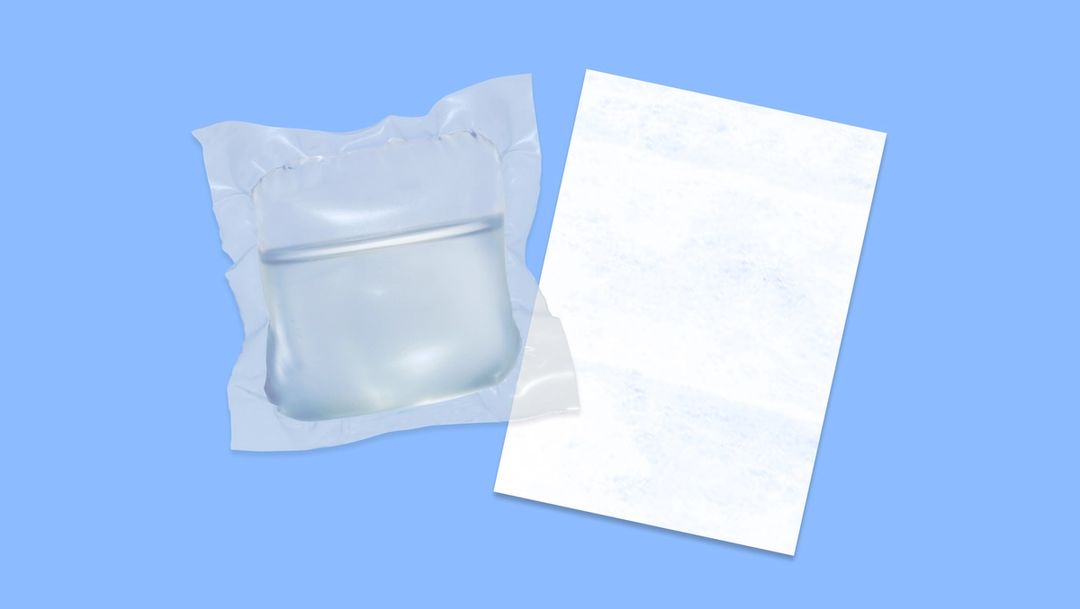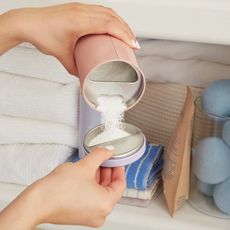Are Dishwasher and Laundry Pods and Sheets Plastic?

Written by: Natalie Henderson, Chief of Staff at Blueland
November 15, 2022
Are Laundry and Dishwasher Pods and Sheets Plastic?
Yes. Laundry and dishwasher pods and sheets are made with or wrapped in petroleum-based plastic called polyvinyl alcohol, also referred to as PVA or PVOH. This plastic is designed to dissolve, but it doesn't disappear. Pods are plastic.
What is PVA?
PVA, also known as polyvinyl alcohol or PVOH, is a plastic polymer used in all dishwasher and laundry pods and sheets. PVA is the thin plastic wrapping around pods and is woven into laundry sheets to keep them intact. PVA is designed to dissolve, but it doesn’t disappear. In the U.S. alone, an estimated 20 billion PVA wrapped dishwasher and laundry pods are used every year. These pods dissolve and wash down our drains, but just because they dissolve doesn’t mean they disappear. A study published in the International Journal of Environmental Research and Public Health, Degradation of Polyvinyl Alcohol in US Wastewater Treatment Plants and Subsequent Nationwide Emission Estimate, shows that while PVA does dissolve, it doesn’t always biodegrade. Over ~75% of plastic PVA particles persist in oceans, waterways and soils after they dissolve. Leaving fully intact PVA particles to pollute the environment.
Is PVA Plastic?
Yes. PVA is a synthetic, petroleum-based plastic that is often used to make thin layers of plastic wrapping and lining, like the wrapping of dishwasher and laundry pods and sheets. Many brands will sell “plastic-free” laundry or dishwasher detergent. However, if you look closer and see PVA, PVOH or Polyvinyl Alcohol as an ingredient, you’ll know it can’t really be plastic-free. PVA is a plastic polymer that is being washed down our drains.
Does PVA Biodegrade?
PVA is designed to dissolve in water so it is often out of sight and out of mind. However, over ~75% of PVA from plastic pods persist in the environment after they’ve dissolved in dishwashers and washing machines and washed down the drains. It is possible for PVA to biodegrade, however it requires extremely specific conditions in order to break down. PVA is only biodegradable with a specific set of conditions, like the presence of certain PVA-adapted microorganisms that help break down the plastic particles, and a specific amount of time needed with these microorganisms for the plastic to degrade.
To biodegrade completely, PVA needs to be in the presence of specific, PVA-adapted microorganisms that take several weeks for adaptation and subsequently, at least 24 hours to degrade the majority of incoming PVA. In most U.S. wastewater treatment facilities, those microorganisms aren’t present and the water treatment process lasts several hours, so the ideal conditions are not typically met. Additionally, it requires specific temperatures and food-to-microorganisms ratios on top of the above factors. These conditons are rarely met in wastewater treatment facilities. In New York City, it’s estimated that none of the 14 wastewater treatment facilities that service the city can fully biodegrade PVA.
What Happens when PVA is Released Back into the Environment?
Research on PVA is just getting started, but what we do know is that an estimated 75% of PVA from laundry and dishwasher pods is released into the environment. Once it’s in the environment, PVA has the potential to exhibit bioaccumulative properties, which means it could carry other toxic chemicals or heavy metals up the food chain. Like other forms of plastic pollution, PVA has the potential to cause harm to the environment, plants and animals. A recent study has even found PVA in human breast milk.
What Can You Do About PVA?
Join our campaign against PVA, and recognize that Pods Are Plastic. Despite the appearance of PVA, it is a plastic that is being released back into our environment. Sign our petition to request that the EPA regulate PVA, and require further environmental health and safety testing. In addition, we’re asking the EPA to remove PVA from the EPA Safer Choice List, until such testing is complete. Read our full petition here.
Sign our petition to the EPA to help us keep PVA from plastic pods out of our water.
Frequently Asked Questions
Keep Reading
Refill is the New Recycle
The perfect way to start cutting out single use plastic from your home.











